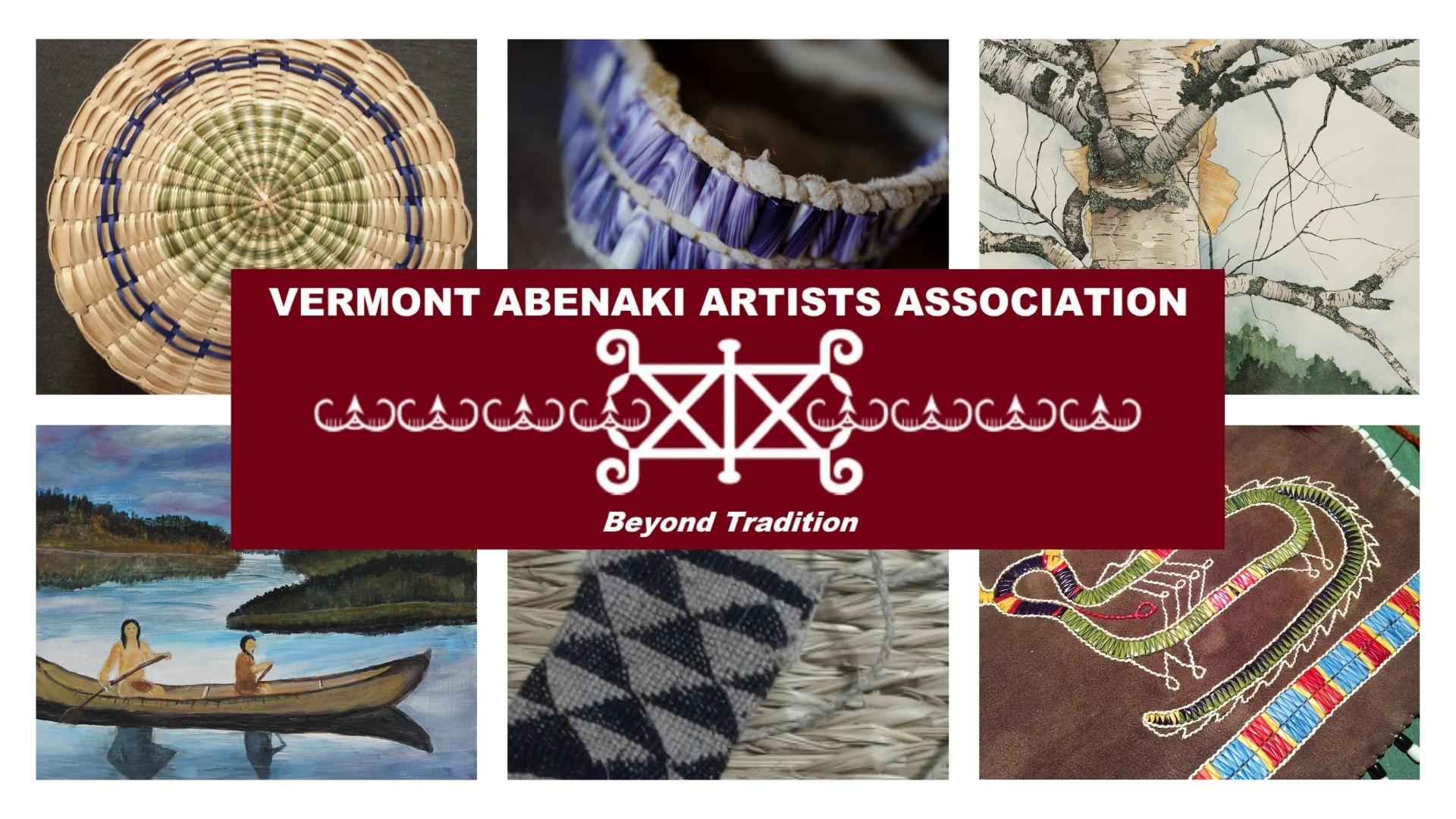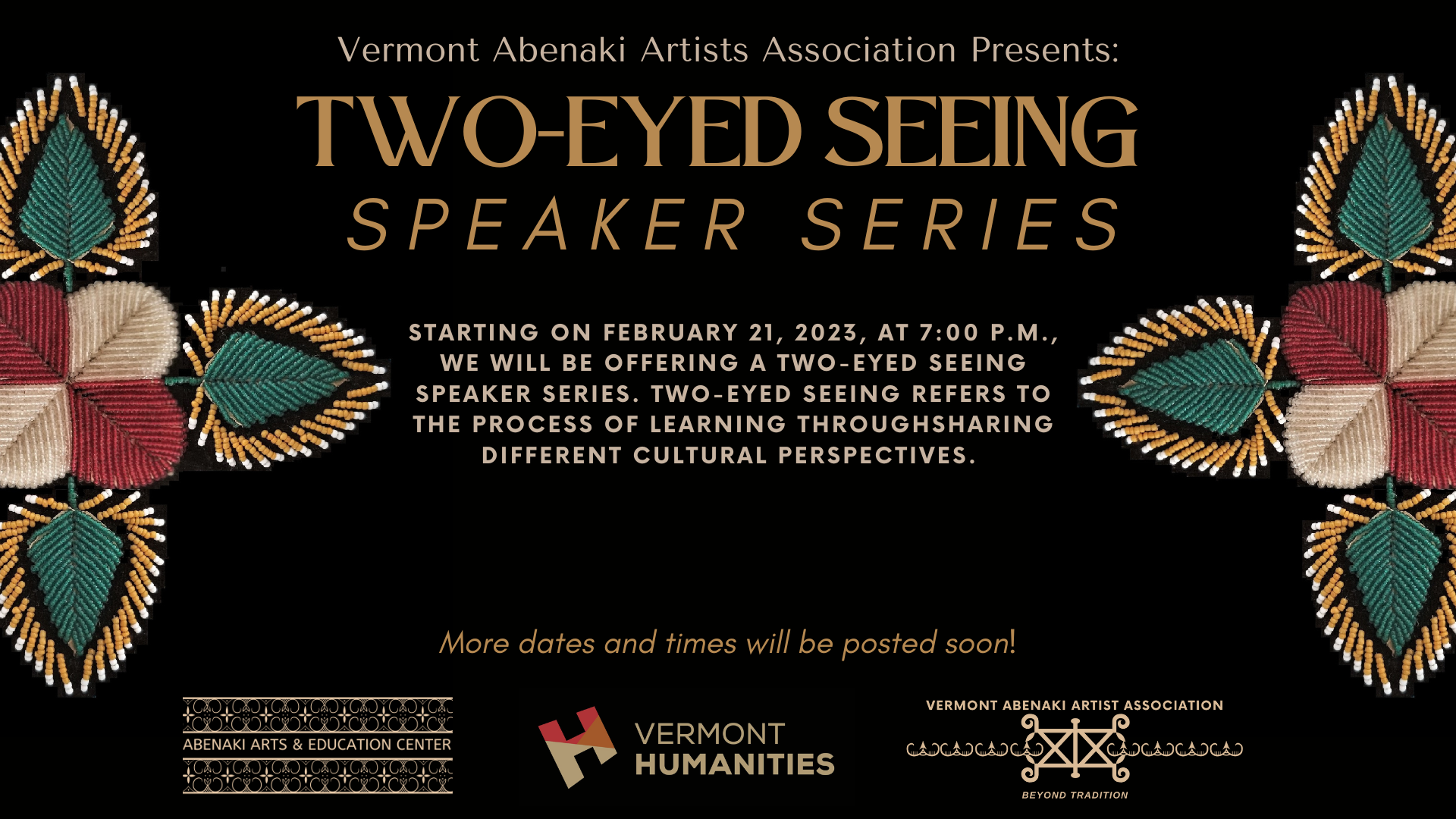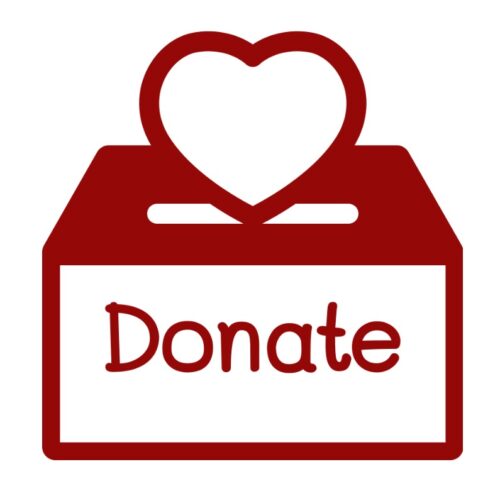Each year, the Vermont Abenaki Artists Association partners with the Abenaki Arts & Education Center to present a speaker series. Native American and Non-Native subject matter experts from different disciplines come together to discuss important topics.
Speaker Series
Two-Eyed Seeing Speaker Series (2023)
The term “Two-Eyed seeing,” coined by Mi’kmaw Nation Elder Albert Marshall, describes the experience of seeing the strength of Indigenous knowledge with one eye and the strength of Western knowledge with the other. Series speakers will share perspectives on community relationships to regional waterways, including archaeology, ecology, advocacy, Western and Indigenous science, and more.
NH Rep. Sherry Gould (Nulhegan Abenaki), a member of the New Hampshire House of Representatives, and Dr. Robert Goodby of Monadnock Archaeological Consulting are long-time friends and collaborators. As charter members of the New Hampshire Commission on Native American Affairs, Sherry served as Chair and Bob was the representative appointed by the New Hampshire Division of Historical Resources.
In honor of World Water Day, the Vermont Abenaki Artists Association (VAAA) was pleased to present Kwanitekw (Connecticut River): The Sustainer of Life. On March 22 at 7 pm, a panel of Indigenous citizens and environmental scientists met to share multiple perspectives on living in relationship with the Connecticut River watershed.
The Two-Eyed Seeing speaker series was supported in part by the Vermont Humanities, Vermont Arts Council, and program partners Abenaki Arts and Education Center, Abenaki Trails Project, Institute for American Indian Studies, Connecticut River Conservancy, Monadnock Archeology Consultants, and the Connecticut Department of Energy and Environmental Protection, Fulcrum Press.
Any views, findings, conclusions, or recommendations expressed do not necessarily represent those
of the presenters and do not reflect those of the partner organizations or supporters.
Bridging Perspectives Speaker Series (2024)
Vermont Abenaki Artists Association annual Speaker Series is a timely exploration into the context of Abenaki Indigenous experiences and narratives. This year’s series aligns with our vision for Abenaki Unity, presenting vital topics that resonate with the challenges faced by Indigenous communities across North America, including the American Abenaki Tribes.
All opinions expressed by the Program Presenters are solely their current opinions and do not reflect the opinions of the program hosts, program partners, and sponsors.
Sponsored by
October 24 @ 6:30 pm – 7:30 pm
Speaker Series: Encountering Ndakinna: Reconsidering Abenaki History in Vermont and New Hampshire
Webinar
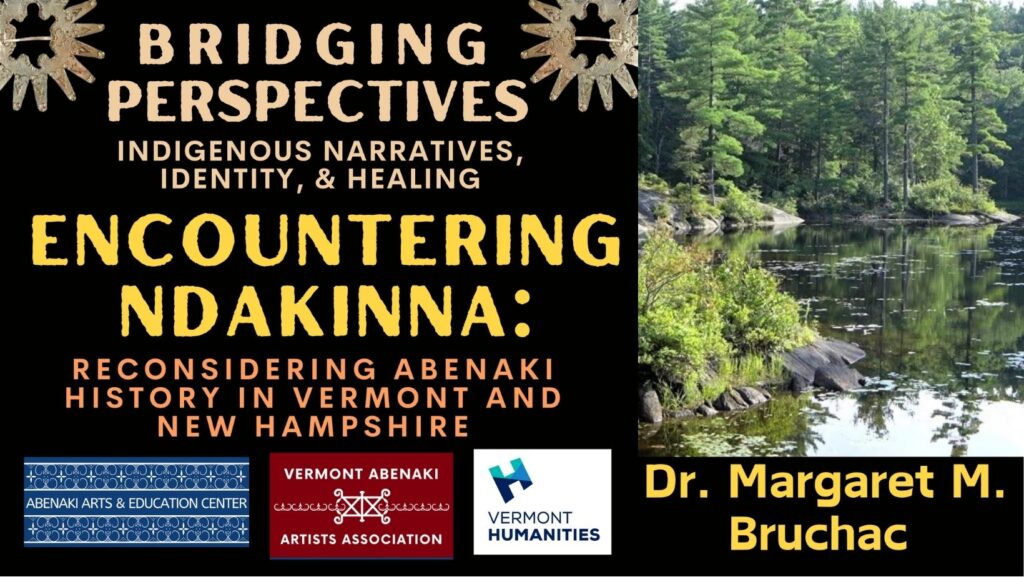
Indigenous histories are deeply rooted in northern New England, particularly in present-day Vermont and New Hampshire, a region collectively known to Abenaki people as Ndakinna (“our homeland”). Early colonial explorers recognized the abundant natural resources that made this territory so hospitable, but failed to recognize the complexities of Abenaki foodways and lifeways. The inherently fluid and flexible structure of family bands, the seasonal nature of homesites, and the ready access to travel routes enabled people to strategically relocate as needed to gather resources, adapt to climatic change, and evade conflict.
In the late 1600s, in the aftermath of King Philip’s War, many Native refugees from the middle Connecticut River valley relocated northward in diaspora, seeking refuge in Abenaki territory. During the French and Indian Wars, some Abenaki and other Native refugees joined new inter-tribal settlements organized around French Catholic missions, further confusing the picture of the past. During the late 1700s, provincial governors, soldiers, land speculators, and settlers alike colluded in re-writing regional history by promoting the notion that colonial settlers were the first permanent inhabitants and Abenaki people were wanderers who had abandoned the territory. This talk features new research into archaeological records, historical archives, and other sources that document Abenaki persistence and survivance, despite past and present attempts at erasure.
Dr. Margaret M. Bruchac (Nulhegan Abenaki) – in her multi-modal career as a performer, ethnographer, historian, and museum consultant – has long been committed to critical analyses of colonial histories and recoveries of Indigenous histories. She holds a BA in Theater and History from Smith College, and a PhD from the University of Massachusetts Amherst. At the University of Pennsylvania, Dr. Bruchac is Professor Emerita of Anthropology, founder of the Native American and Indigenous Studies Initiative, and Associate Faculty in the Penn Cultural Heritage Center (https://anthropology.sas.upenn.edu/people/margaret-bruchac). Her research has been supported by grants from the American Philosophical Society (2011), School for Advanced Research (2012), and Mellon Foundation (2021), among others. Since 2014, she has directed “The Wampum Trail,” a restorative research project designed to reconnect wampum belts in museum collections with their related Indigenous communities (https://wampumtrail.wordpress.com/). Bruchac is also a member of the Great Lakes Research Alliance for the Study of Aboriginal Arts and Culture. She has long served as a consultant to New England museums, including Historic Northampton, Historic Deerfield, the Pocumtuck Valley Memorial Association, and Old Sturbridge Village. Her book Savage Kin: Indigenous Informants and American Anthropologists (University of Arizona Press 2018) was the winner of the inaugural Council for Museum Anthropology Book Award (https://uapress.arizona.edu/book/savage-kin).
Click here to register and receive your link to the webinar.
Speaker Series: An Indigenous Perspective on Nature: Working Together as Allies by Randy Kritkausky
Author and storyteller Randy Kritkausky, a federally enrolled tribal member of the Citizen Potawatomi Nation who lives in Vermont, writes about awakening to Native American spiritual teachings. He has come to regard owls, coy-wolves, and the forest enveloping his home as teachers. As young and old alike struggle to make sense of the “new abnormal” of floods and violent windstorms in Vermont, Randy finds inspiration and hope by bridging mainstream and Indigenous thinking about environmental issues. Indigenous communities and other-than-human kin show us opportunities to heal the planet’s ecosystems by learning to “listen” to one another more respectfully. Such a journey is open to those in the mainstream as well as those with Native American heritage who hunger for a deeper understanding of what is going on in the natural world that surrounds us. Learn how we do this together.
Hunting and Fishing: A Case Study in Cultural Continuity – Frederick M. Wiseman, Ph.D.
American Abenaki people in Vermont were and are culturally competent in many types of Indigenous hunting and trapping techniques as well as the use of traditional hunting spirituality. They have used sophisticated Native American technologies such as canoes and snowshoes to get to hunting grounds, stayed in the field in wigwams or tents, fished with spears and handlines, hunted and killed game with lances, bows, and guns, and brought it back to camp for processing. Wiseman presents abundant evidence of these activities in the form of objects, tools, historic photographs, family stories and distinctive skills passed down through generations of Abenaki families all with good documented historical Vermont provenance.
Dr. Wiseman trained as a Paleoethnobotanist at the University of Arizona’s Laboratory for Paleoenvironmental Studies and has done botanical, phytogeographic and ethnobotanical fieldwork in the American Southwest and Northwestern Mexico. After serving as Assistant Professor of Biogeography in the Department of Geography and Anthropology at Louisiana State University and as Principal Research Scientist at the MIT Center for Materials Research in Archaeology and Ethnology, where he taught courses on the ecology of the rise of Indigenous American Civilization, Wiseman returned to his Vermont roots, to teach and do research at the former Johnson State College until his retirement as Professor and Department Chair in 2014. Since 1987, he has focused on the Indigenous Wabanaki people of the far Northeast, having published popular and academic books, curricula and film on modern Indigenous culture, prehistoric archaeology, and Contact Period ethnohistory, politics and technology.
He was instrumental in the research and political advocacy that led to four Vermont Indigenous bands being recognized by the State of Vermont, for which Wiseman was awarded the first Lifetime Achievement Award by the Vermont Abenaki Artists Association. In 2018, Wiseman was honored for his work in Wabanaki revitalization in a special ceremony at Indian Township, Maine. Daniel Nolette, executive Director of the Odanak First Nation’s tribal government, recently “praised Wiseman’s work” (“A false narrative….,” Vtdigger.org, 11/14/2023), and on 11/30/2023 Odanak Chief Rick Obomsawin invited him to present his work to the Tribe.
His experience in Wabanaki and ethnobotanical studies have been brought to bear on the archaeological and Colonial Period ecology and subsistence of Northeastern Indigenous peoples and their neighbors. With his help, Northeastern Native Communities from Maryland to New Brunswick are reviving their interrupted deep-time agricultural systems, working with experimental gardens to re-configure an almost lost Northeastern agricultural heritage. He has partnered with Vermont Organics Reclamation of St. Albans, VT to create the first Northeastern agroforest based upon his paleoenvironmental work in ancestral Indigenous ecosystem management. His recent work focuses on American Abenaki wellness and trauma response and the specific use of cultural revival as a way of mitigating trauma and working toward individual and community health and wellness. He has just completed a year-long series of workshops, a response to public concerns regarding Vermont Abenaki cultural legitimacy, consisting of illustrated lectures, demonstrations, exhibits of relevant material culture and discussions of the history of the Abenaki revival, settlement patterns, wellness, language, subsistence, ceremony, and material culture.
Sponsored by the Vermont Department of Health
All opinions expressed by the Program Presenters are solely their current opinions and do not reflect the opinions of the program hosts, program partners, and sponsors.
“Who is a “Legal” Indian? – Navigating Federal and State Laws in the US and Canada” with Paul-René Tamburro, Ph.D.
This thought-provoking session addresses the ongoing struggle for individuals to assert their right to declare and determine their own cultural identity, seeking equitable representation within larger mainstream communities and governmental entities. Navigating Federal and State Laws in the US and Canada, Paul-Rene Tamburro will explain who is Indian biologically, politically, and culturally. This program will unravel the complexities of Indigenous identity within the legal framework, examining federal and state laws that shape recognition and rights for tribes, with a focus on the Abenaki community. Join us in navigating the intricate terrain of Indigenous identity, acknowledging unique challenges, and shedding light on the legal landscape that significantly impacts these communities.
Paul-René Tamburro, PhD Anthropologist with an MA in Linguistics and MSW in Indian Child Welfare, is Director of Sunrise Drum, Inc. an internationally-focused Indigenous cultural studies organization. He has taught at numerous universities and colleges in the US and Canada, including Indiana University, Indiana State University and Purdue University in Indiana, taught at Heritage University in Washington State and served as Director of the Reservation Based/Community Determined Program at The Evergreen State College (TESC); and taught at University College of the Cariboo, and Thompson Rivers University (TRU) in Kamloops BC, Canada, in Washington State. Read More . . . link to Sunrise Drum website.
Sponsored by the Vermont Department of Health
All opinions expressed by the Program Presenters are solely their current opinions and do not reflect the opinions of the program hosts, program partners, and sponsors.
Intergenerational Trauma: Healing and Resilience – Andrea Tamburro, MSW, EdD.
This 60-minute Zoom program provided a space to discuss the enduring impact of colonization, which triggers both past and current struggles for Native American individuals and families, with a particular focus on the Abenaki and other Northeastern tribes. Together, we aim to foster a deeper understanding and create a supportive dialogue around current challenges stemming from historical injustices that continue to affect communities today. Dr. Tamburro will explore healing practices that play a pivotal role in bringing communities together and promoting resilience. This program offers a journey of mutual understanding, healing, and resilience, fostering stronger and more connected communities for a better future.
Andrea Tamburro (Piqua Shawnee) has extensive teaching and research experience in both Indigenous and non-Native settings. She was education director for a federally recognized tribe, has served as coordinator of multicultural programs in a mental health center, and as family services and mental health specialist in early childhood education programs. She continues to teach about Indian Child Welfare and Multi-generational trauma. Read More . . . link to Sunrise Drum website.
Sponsored by the Vermont Department of Health
All opinions expressed by the Program Presenters are solely their current opinions and do not reflect the opinions of the program hosts, program partners, and sponsors.
Remembering The Dawn Land: A presentation on the historical novel Dawn Land by its author, Joseph Bruchac.
The area we now refer to as Western New England has been the homeland of Native people for at least 10,000 years. Relying on oral traditions and the related elements of natural history, archaeology, cultural survival, indigenous language, and the living land itself, the author takes us back to that ancient time. The heart of the story is the hero’s journey, with his faithful dogs by his side, of the book’s main character Young Hunter. The program will include discussion of how the novel — and its main characters — came to be, the telling of some of the stand alone stories from the book, and a Q&A session at the end. Award-winning author, storyteller, and musician, Joseph Bruchac has published work in virtually every genre since his first collection of poetry in 1971. The author of over 180 books, his novel Code Talker was recently listed by Time magazine as one of the 100 best YA books of all time. His experiences include three years of volunteer teaching in West Africa, eight years of running a college program inside a maximum security prison, and half a century of studying and teaching such martial arts as pentjak-silat and Brazilian jiu-jitsu. The current Poet Laureate of Saratoga Springs, New York, he’s the Executive Director of the Ndakinna Education Center, a licensed wildlife rehabilitator, and an enrolled citizen of the Nulhegan Abenaki tribe.
Sponsored by the Vermont Department of Health
All opinions expressed by the Program Presenters are solely their current opinions and do not reflect the opinions of the program hosts, program partners, and sponsors.
Inoculating Whiteness: Settler Colonialism, Whiteness, & Infectious Diseases in Sheet’ka – Adam Kersch, Ph.D.
When colonizers arrived in Sheet’ka (Sitka, Alaska), the homeland of the Tlingit people, they imported devastating infectious diseases. Russian and Euro-American colonizers’ writings describe these diseases as a marker of colonizers’ self-assumed superiority. Colonizers saw vaccines as introducing a material part of European technology that would ultimately lead to Tlingit people’s acceptance of Russian and American colonial rule. In other words, they saw vaccines as inoculating Tlingit people with whiteness. Research on this project involved archival analysis, interviews, and participant observation. It began after receiving permission from Sitka Tribe of Alaska’s Tribal Council and included reports to the Tribal Council on vaccine hesitancy during the pandemic. This talk will discuss over 200 years of colonial history and how colonizers used ideas about infectious diseases and vaccinations to justify attempted ethnocide. It will also discuss how Tlingit leaders responded to other manifestations of whiteness during the COVID-19 pandemic.
Adam Kersch (he/they) is a Jewish-American researcher whose work has focused on race, public health, policy, and immigration. They are committed to community-led and community-oriented research and engaging with both academic and non-academic audiences. He works in memory of his grandparents, who survived attempted genocide.
After completing his dissertation – which focused on race, settler colonialism, and public health policy during infectious disease outbreaks in Sheet’ká (Sitka, Alaska) from 1800 to present – he earned his PhD in anthropology at the University of California, Davis in 2022. His masters research – completed in 2016 with the Department of Anthropology at the University of Central Florida – examined how refugees, asylum-seekers, and undocumented immigrants in Sicily navigated gaps in European Union and Italian healthcare policies. In their spare time, Adam enjoys spending time with their wife and dog, writing music, hiking, spending time outdoors, reading, and crafting. Adam is immensely grateful for the opportunity to work with and learn from the TRC and Vermonters.
Sponsored by the Vermont Department of Health
All opinions expressed by the Program Presenters are solely their current opinions and do not reflect the opinions of the program hosts, program partners, and sponsors.
Past Speaker Series
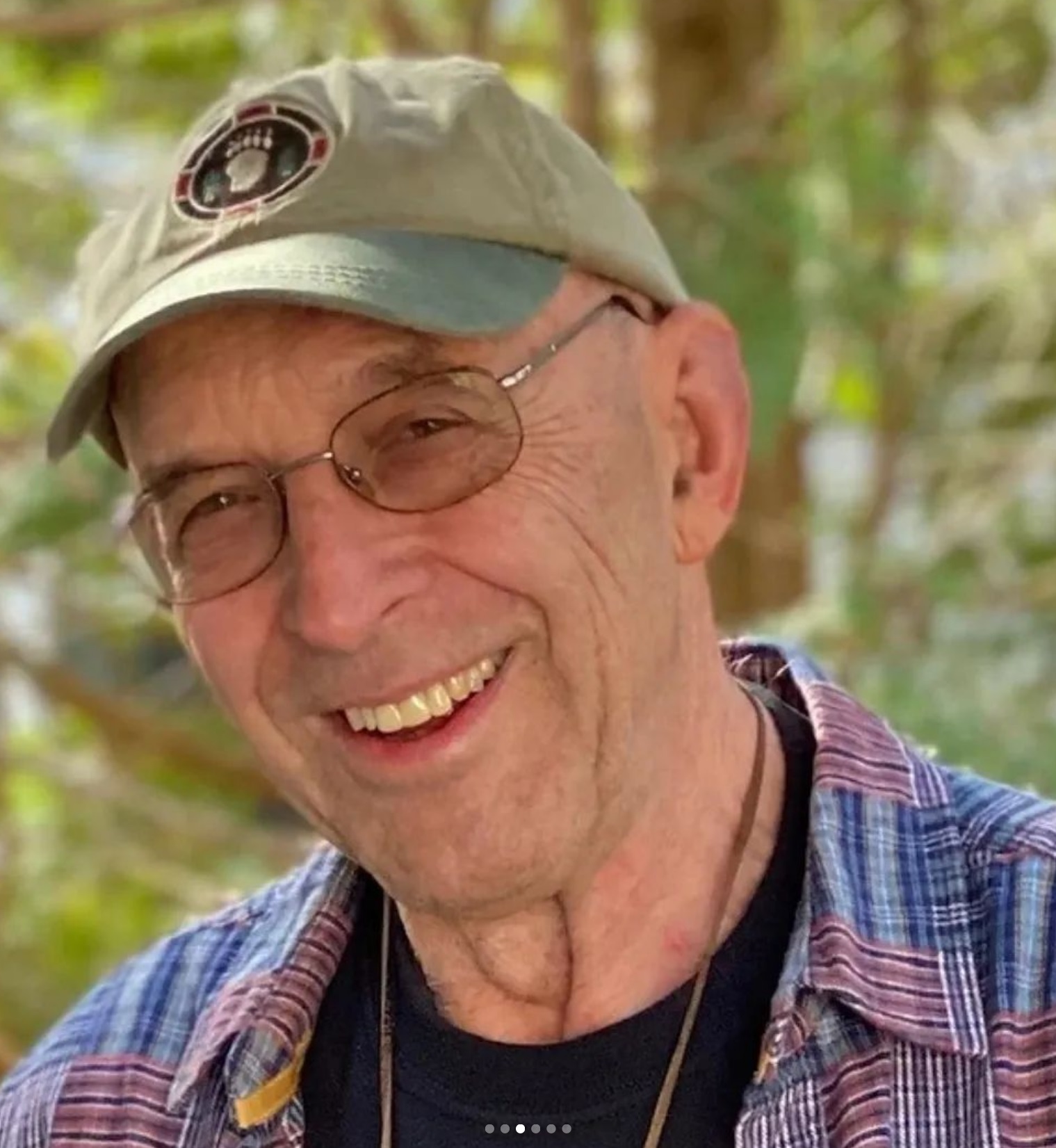
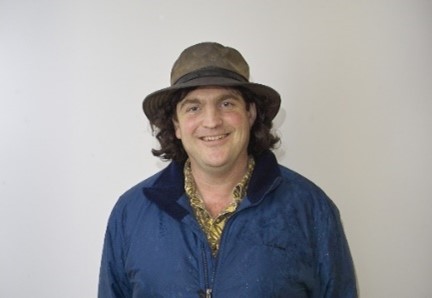
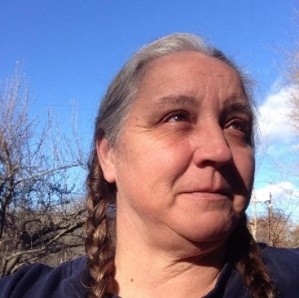
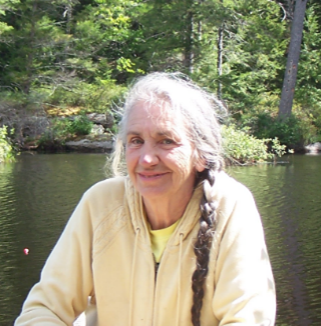
The VAAA and the Abenaki Arts and Education Center often work together or with some of our sponsors to present programs during the year. Over the past several years, we have had the opportunity to feature some wonderful programs by artists, genealogists, ecologists, a poet laureate…….and the list goes on.
If you have missed a program that you really wanted to attend, or if you want to revisit any of the programs, please review the following list and click on the provided link to be taken to our YouTube page.
Note that most of the videos listed below have Human Generated Captions for Accessibility. Special thanks to the Vermont Arts Council and Vermont Humanities for their support.
NH Rep. Sherry Gould (Nulhegan Abenaki), a member of the New Hampshire House of Representatives, and Dr. Robert Goodby of Monadnock Archaeological Consulting are long-time friends and collaborators. As charter members of the New Hampshire Commission on Native American Affairs, Sherry served as Chair and Bob was the representative appointed by the New Hampshire Division of Historical Resources.
A Year of Moons with Joe Bruchac (Human Generated Captions)
The Abenaki Arts & Education Center welcomed author Joe Bruchac in a discussion about his new book “A Year of Moons: Stories from the Adirondack Foothills, a collection of essays that reflect on the rhythms of the land, the lunar cycles of the year, the plants and animals that surround us, and the connections that link humans, animals and the land.
Interview with Jeanne Morningstar Kent
Firsting and Lasting: Writing Indians Out of Existence in New England
In this talk, Jean O’Brien narrates the argument she makes in her book, Firsting and Lasting, that local histories written in the nineteenth century became a primary means by which Euro-Americans asserted their own modernity while denying it to Indian peoples.
Outdoor Education and Allyship with Abenakis (Human Generated Captions)
Outdoor education is placed-based work that relies on land-based knowledge which often borrows from Native American survival and cultural craft skills. This type of work and connection to the land may lead educators to wonder how they can be good allies for the American Abenaki people. Panelists from several Abenaki cultural organizations will discuss their organizations and allyship needs.
Abenaki Basket Makers (Human Voice Captioned)
The 2021 Virtual Abenaki Heritage Weekend presents “Abenaki Basket Makers” featuring Sherry Gould of the Nulhegan Abenaki Heritage Preservation Department. In this presentation, she discusses basket-making traditions in N’Dakinna (Abenaki for “our homeland”).
Kwanitekw (Connecticut River) : Sustainer of Life (Human Generated Captions)
In honor of World Water Day, the Vermont Abenaki Artists Association (VAAA) was pleased to present Kwanitekw (Connecticut River): The Sustainer of Life. On March 22 at 7pm, a panel of Indigenous citizens and environmental scientists met to share multiple perspectives on living in relationship with the Connecticut River watershed.
Abenaki Pottery featuring Vicki Blanchard (Human Generated Captions)
In this short video, Vicki Blanchard, an Abenaki potter, explains the new pottery project that is leading her into museum collections to study pottery made by her ancestors. She is now incorporating these designs into her own pottery.
Vermont Proclamations & Resolutions Support Vermont’s 4 State Recognized Tribes (Human Captions)
On Tuesday, May 2, 2023, at 12pm, the Vermont Commission on Native American Affairs, along with the Abenaki Alliance, Vermont Abenaki tribal leaders, and community representatives, held a press conference to celebrate Governor Scott’s Proclamation 23-054 naming May 1-7, 2023 as Abenaki Recognition and Heritage Week.
Abenaki Fish-Ins – Interview with Joe Bruchac (Human Generated Captions)
Joe Bruchac describes his experience during the historic Abenaki Fish-Ins led by Chief Homer St. Francis (Missisquoi Abenaki Tribe). For over forty years, Joseph Bruchac has been creating literature and music that reflect his indigenous heritage and traditions. He is a proud Nulhegan Abenaki citizen and a respected elder among his people. He is the author of more than 120 books for children and adults.
Quillwork Interview with Jim Taylor (human generated captioning)
In this virtual session, we welcome Jim Taylor (Elnu Abenaki Tribe in Southern Vermont), a talented graphic artist, who also works in many traditional and contemporary media forms, including quillwork, carving, and wampum. In this interview, he will discuss his art and the historical context of his work.
Vermont Biz News Release
Speaker Series Shares Indigenous and Scientific Views of American Abenaki Heritage, March 7 & 22
In March, Vermont Abenaki Artists Association (VAAA) is pleased to present the 2023 Two-Eyed Seeing Speaker Series. The term “Two-Eyed seeing,” coined by Mi’kmaw Nation Elder Albert Marshall, describes the experience of seeing the strength of Indigenous knowledge with one eye and the strength of Western knowledge with the other. Series speakers will share perspectives on community relationships to regional waterways, including archaeology, ecology, advocacy, Western and Indigenous science, and more. All programs in the Two-Eyed Seeing Speaker Series are presented on Zoom, thanks to support from . . . Click here to read more
WCAX CBS 3 News
Speaker series shares views of American Abenaki heritage

BURLINGTON, Vt. (WCAX) – Local Abenaki artists are encouraging people to open their minds to different perspectives.
The Vermont Abenaki Artists Association in February and March is presenting the “Two-Eyed Seeing” speaker series, Vera Longtoe Sheehan, director of the VAAA says two-eyed seeing is a way of viewing the world from both an indigenous and western perspective. She says the goal of the series is to help folks see the bigger picture.
“I’m hoping everyone comes away with this idea that we have this amazing world and so many different types of people and to bring diverse perspectives to the way we look at archaeology . . . read more
Article in The Montpelier Bridge: Two-Eyed Seeing: Abenaki Speaker Series

In honor of World Water Day on March 22, the Vermont Abenaki Artists Association (VAAA) is presenting “Kwanitekw (Connecticut River): The Sustainer of Life.” The event is the third in the organization’s “Two-Eyed Speaker Series” that started Feb. 21. The term “Two-Eyed Seeing,” was coined by Mi’kmaw Nation Elder Albert Marshall, Vermont Abenaki Artists Association Director Vera Longtoe Sheehan said in an email to The Bridge. “As Marshall explains, “Etuaptmumk — Two-Eyed Seeing . . . refers to learning to see from one eye with the strengths of Indigenous knowledges and ways of knowing, and from the other eye with the strengths of Western knowledges . . . read more
Speaker Series Shares Indigenous and Scientific Views of American Abenaki Heritage
In February and March, Vermont Abenaki Artists Association (VAAA) is pleased to present the 2023 Two-Eyed Seeing Speaker Series. The term “Two-Eyed seeing,” coined by Mi’kmaw Nation Elder Albert Marshall, describes the experience of seeing the strength of Indigenous knowledge with one eye and the strength of Western knowledge with the other. Series speakers will share perspectives on community relationships to regional waterways, including archaeology, ecology, advocacy, Western and Indigenous science, and more. Admission is free, and donations are welcome.

All programs in the Two-Eyed Seeing Speaker Series are presented on Zoom, thanks to support from the Vermont Humanities and Vermont Arts Council.

February 21, 7pm. Frederick M. Wiseman, Ph. D. presented Heritage Forensics: Rethinking Indigenous Ways of Knowing in an Increasingly Dangerous World. Since the 1990s, Indigenous research has moved toward awareness of many different truths, each depending on one’s cultural or political perspective. “Politicized rewriting of Native history poses a distinct threat to such emerging Indigenous ways of exploring the world,” says Dr. Wiseman. “Indigenous and scientific ways of knowing can work together to preserve a legitimate American Abenaki biocultural history and worldview.”
Registration Closed
Image: This ancestral American Abenaki beadwork from Waterville, Vermont, created about 1845, was identified by Dr. Wiseman. Vermont Indigenous Heritage Center Collection
March 7, 7pm. A Deep Presence and a More Inclusive History. Rep. Sherry Gould (Nulhegan Abenaki), member of the New Hampshire House of Representatives, and Dr. Robert Goodby of Monadnock Archaeological Consulting are long-time friends and collaborators. As charter members of the New Hampshire Commission on Native American Affairs, Sherry served as Chair and Bob was the representative appointed by the New Hampshire Division of Historical Resources. Their work together includes educational projects funded by the New Hampshire Charitable Foundation and the Abenaki Trails Project that seeks to honor and share a more inclusive history of the Abenaki people and to highlight historical Abenaki sites. Registration closed


March 22, 7pm. Kwanitekw (Connecticut River): The Sustainer of Life. In honor of World Water Day, a panel of Indigenous citizens and environmental scientists share multiple perspectives on living in relationship with the Connecticut River watershed. Panelists include Darlene Kascak (Schaghticoke Tribal Nation) Education Director of the Institute for American Indian Studies (IAIS) and Traditional Native American Storyteller; Vera Sheehan (Elnu Abenaki Tribe) and Director of the Vermont Abenaki Artists Association and Abenaki Arts & Education Center; Kathy Urffer, River Steward with the Connecticut River Conservancy; and Matt Devine, Fisheries Biologist with the Connecticut Department of Energy and Environmental Protection. Gabriel Benjamin, Public Historian and IAIS Museum Educator serves as Moderator. Register in advance for this meeting:
https://zoom.us/meeting/register/tJwtcuGvpj0rHNSwpRzRKqYc05cw7RmeL4ix

Most recently, Vera Longtoe Sheehan (Elnu Abenaki Tribe) curated the exhibit Nebizun: Water is Life, which is touring New England 2022-2024.

As a traditional Native American storyteller, Darlene Kascak (Schaghticoke Tribal Nation) understands the importance of educating both young and old about the many misconceptions and stereotypes about her ancestors, providing children and adults the opportunity to have a new understanding of Connecticut’s Indigenous Peoples both in the past and in the present.

Matt Devine is a Fisheries Biologist with the Connecticut Department of Energy and Environmental Protection.

As a River Steward, Kathy Urffer works to protect and restore the Connecticut River and its tributaries. She enjoys re-learning about the natural world through the eyes of her two children.

VAAA is grateful for the support for this Speaker Series from the Vermont Humanities. Any views, findings, conclusions, or recommendations expressed do not necessarily represent those of the Vermont Humanities.
Program partners for the Two-Eyed Seeing Speaker Series include Abenaki Arts and Education Center (AAEC), Abenaki Trails Project, the Connecticut River Conservancy, the Connecticut Department of Energy and Environmental Protection (CDEEP), Institute for American Indian Studies (IAIS), and Monadnock Archaeological Consulting LLC.






Frederick M. Wiseman, PhD
Juried Artist since 2013 – Master Artist: Author, Film, Fine Art (Painter & Graphic Art), Regalia (Clothing, Sashes, Bags), Twined Bags

Fred Wiseman teaches Wabanaki decorative arts, ceremonial oratory, dance and song based on historical precedent, but adapted for modern venues and audience.
His most recent (2010-) work focuses on the choreography, stagecraft, regalia and ceremonial accoutrements for dances and ceremonies associated with the agricultural and ceremonial calendar, from Winter solstice observances through spring planting ceremonies, to the various sun dances through the green corn and harvest supper observances. However, in the past, he has worked in other media and formats from “fashion shows” to ceremonial gaming, to the crafting of arms and armor.
Fred uses whatever is necessary to accomplish the goal, from set (stage) design to rock and shell carving to clothing to video and printed word.
Artist Statement
I am a scholar and artist whose purpose is to connect the Indigenous Peoples of Vermont and their environs to their stylistic heritage by all means necessary, whether it be through film/graphic arts, the performing arts or the decorative arts. Professional goals and objectives revolve first around repatriation, the converting of written data, or archival music artifacts and imagery held by Euroamerican institutions into formats and systems of knowing usable by Indigenous people and organizations for cultural reclamation and revitalization. Second, it incorporates tradition and revelation as guideposts in this work. Third it incorporates going beyond recaptured tradition to synthesize antique materials and motifs with the contemporary, to envision an alternative, syncretic stylistic world that could answer –“what if Genocide of Northeastern Natives had been less complete?” Southwestern and Plains Native styles rooted in deep time arts tradition flourish in the West, why not allow this to happen in Indigenous Vermont?
My work is not available for sale to the Euroamerican public, it exclusively produced for tribal governments, organizations and citizens and lent or given at no cost to the recipient. The artist’s designs and productions, ranging from regalia to wampum belts and collars belong to the Pleasant Point and Indian Township Governors (ME), The Citizens of the Aroostook Band of Micmacs (ME), the Grand Chief of the Seven Nations at Akwesasne (NY), and the Chiefs and Tribal Councils of Missisquoi, Nulhegan and Koasek (VT).
However, my work has been exhibited and studied over the years at the various venues listed below.
Contact
Email: [email protected]




Exhibit, event and performance history:
Deep Roots, Strong Branches 2024-2025
- 2024 Deep Roots, Strong Branches – Lake Champlain Maritime Museum, Vergennes, VT
- 2025 Deep Roots, Strong Branches – Lake Champlain Maritime Museum, Vergennes, VT
1994
- “The Spirit of the Abenaki.” Chimney Point Historic Site. Jewelry and sculpture.
1994-1995
- “The Light Of the Dawn.” Chimney Point Historic Site. Jewelry and wood sculpture
1995
- “Shamans, Magicians and the Busy Spider” Rochester Museum of Art. Rochester, NY. Jewelry and wood sculpture.
- “Abenaki Dawn” American Indian Institute. Washington, CT. Jewelry and wood sculpture.
1996
- “Light from the Dawnland” San Diego Museum of Man. San Diego, CA. Jewelry and wood sculpture.
1998- 2008
- Abenaki Tribal museum, Swanton, VT (All museum installations)
1999
- The Great Council Fire Performance. The Akwesasne Cultural Center (NY)
2001
- “Wabanaki Wampum” Old York (ME) Historical Society. Wampum belts
- “Notes from the Underground” Shelburne Museum. Stone wampum, wood
- Kanien’kehaka Raotitionhkwa Culture Centre (Kahnawake QC) “Seven and Six (Nations) Exhibit.
2001-2003 New Hampshire Historical Society Museum, various exhibits and event)
2004
- “Wabanaki Memories. Missisquoi Valley HS Stone, Wampum, wood.
- Museé des Abénakis (QC) (my materials are on permanent exhibit there.)
2005
- Great Council Fire Exhibition Museé des Abénakis. Wampum and stonework.
- “Against the Darkness” Screened at the Museé des Abénakis (Odanak, QC), March 22, 2005
- “Against the Darkness” Screened at Mashentucket Pequot Museum. Mashentucket, CT. Oct. 16, 2005
- “Against the Darkness” (35 Minute digital video) Screened at the Vermont Archaeological Society, Oct. 1, 2005
2007
- “The Material Heritage of 17th Century Vermont. Lake Champlain Quadricentennial “Workshop” St. Michael’s College, June 13, 2007
2007-2013
- The Lake Champlain Maritime Museum, June, Indigenous Heritage Celebration (also my materials are on permanent exhibit there.)
2008
- Passamaquoddy Section of the Downeast Heritage Museum, (ME) (my materials are on permanent exhibit there)
2010
- ECHO Science Center and Lake Aquarium, Materials of Culture: 10,000 years of Abenaki Attire (also my materials are on permanent exhibit there.)
2010
- Indian Township Museum (ME), (my materials are on permanent exhibit there.)
- Wapohnaki Museum (ME) “Language and Object” Exhibit and Discussion.
2011
- “Before the Lake Was Champlain” Screened at the New England Antiquities Research Association Conference, Burlington, VT. October 2011
2013
- “1609:the other side of history.” Screened at the Swanton 250th Anniversary
- “Dinner and a Movie” Program. Swanton, VT, April 28, 2013
2014
- Traditional Sources, Contemporary Visions – Invitational Group Art Exhibit. Lake Champlain Maritime Museum, Vergennes, VT
- All My Relations: Faces and Effigies from the Native World – Invitational Group Art Exhibit. Mt. Kearsarge Indian Museum, Warner, NH.
2015
- Parley and Protocol: Abenaki Diplomacy Past and Present. Lake Champlain Maritime Museum. Vergennes, VT.
2016
- Parley and Protocol: Abenaki Diplomacy Past and Present. Fort Necessity National Battlefield, Farmington, PA.
Publications
1987
- Mapping antiques. Maine Antique Digest, Waldoboro ME. Feb. 14-15C.
- Folk art and antiques: a different view. Maine Antique Digest, Waldoboro, ME
- The case of the peripatetic candleholder. Maine Antique Digest, Waldoboro, ME July 34-35 B.
1990
- Some Queen Anne furniture of the Federal Period. Maine Antique Digest, Waldoboro ME
January 1991
- “The Colchester Jar” pp. 98-99; “Quillwork trinket box; thimble cover, notions basket and pincushion”; “Beaded reticule” pp. 178-183; “Rectangular bark container”, pp. 204-205; and “Tipi and canoe”, pp. 216-217. In Graff, N.P.
- Celebrating Vermont: Myths and Realities.University Press of New England.Hanover
- American Indian Art and Native Americans. Maine Antique Digest, Waldoboro, ME
1994
- Bapwoganal Alnobaiwi: The Games of Wôbanakik Cedarwood Press. Underhill, VT. 3 figures. 10 pp.
- Ngwegigaden, an Abenaki year.(11″ X 17″ Three-color poster and accompanying handbook). Cedarwood Press. Underhill, VT
- Wôbanakik. (11″ X 17″ Three-color poster map and accompanying handbook) Cedarwood Press. Underhill, VT
- We were always here. (9″ X 17″ Two-color poster and accompanying handbook) Cedarwood Press. Underhill, VT
1995
- The Gift of the Forest. Ethan Allen Homestead Abenaki Handbook Series # 1. Lane Press. Burlington, VT. 10 figures. 12pp.
- Wôbanakik, the Ancient Land of the Dawn. (18″ X 24″ Four-color map and accompanying handbook) Cartography by Kevin Ruelle. Horseman Press. Burlington, VT
- Wild Plant Foods of the Abenaki. Ethan Allen Homestead Abenaki Handbook Series # 2. Lane Press. Burlington, VT. 12 pp.
- Abenaki Clothing Ethan Allen Homestead Abenaki Handbook Series # 3. Lane Press. Burlington, VT. 7 figures. 12pp.
- An Annotated bibliography and resources list for Abenaki studies. Cedarwood Press. Underhill, VT. 22 pp.
- “New Abenaki Booklets available.” in The Oracle. Summer, 1995. Ethan Allen Homestead. Burlington VT. p. 3.
- “A view from within” Vermont Humanities. Winter 1994-95. Vt. Council on the Humanities, Hyde Park, VT. p. 6.
1996
- History in beads. Historic Roots. Pp. 25-30 Montpelier, VT.
1997
- Linda Pearo, Frederick Wiseman, Madeline Young and Jeff Benay. New Dawn: The Western Abenaki, a Curricular Framework for the Middle Level. Franklin Northwest Supervisory Union Title IX Indian Education Program, 14 First St. Swanton, VT 05488
- Wobobial. (18X26 pictorial poster and accompanying handbook) Abenaki Tribal Museum. Lane Press, Burlington
2000 The Abenaki and the Winooski. In L. Krawitt. The Mills at Winooski Falls. Onion River Press. Pp. 7-10 Winooski
2001
- The Voice of the Dawn University Press of New England. Hanover, NH.
2003
- “Abenaki”, “Abenaki Heritage Days” p. 31; “Mahicans” pp. 194-195;
- “Missisquoi Village” p. 207;
- “Winoskik” 327 in Duffy, J, S. hand and R. Orth. Vermont Encyclopedia University Press of New England, Hanover
- “Truthless”. Seven Days, Sept. 10-17, 2003. p. 4A
2005
- The Wabanaki World Vol. I : Decolonizing a taken prehistory of the Far Northeast University Press of New England
- Blom, Deborah, James Petersen and —– “Repatriation and Monument Road:
- Abenaki and archaeologists efforts to find a solution.” In Jordan Kerber. Cross Cultural Collaboration. University of Nebraska Press
2008
- “Changeling” Video, Miraclegirl Productions. 1522 Harvard Street Apartment 5, Santa Monica, CA (Producer)
- “Calumet to crisis and back.” (Video) Franklin Northwest Supervisory Union Office of Indian Education (Producer/Director/Filmographer)
2009
- At Lake Between. Lake Champlain Maritime Museum, Basin Harbor, VT, Champlain Tech Lake Champlain Maritime Museum, Basin Harbor, VT
- “1609: The other side of history. Wôbanakik Heritage Center, Swanton, VT (Producer/Director)
- “1609: Quadricentennial Curriculum” Lake Champlain Maritime Museum lcmm.org/navigating
2010
- Baseline 1609. Lake Champlain Maritime Museum, Basin Harbor, VT
- “Before the Lake Was Champlain” Hidden Landscapes Productions 1 Hewins Farm Rd., Wellesley, MA (Co-Producer)
- “The New Antiquarians” Hidden Landscapes Productions 1 Hewins Farm Rd., Wellesley, MA 02481 (Co-Producer)
2011
- ____ and Melody Walker. The Abenakis and their Neighbors: Teachers and Interpreters resources. Vermont Commission on Native American Affairs. Montpelier, VT.
2012
- Reclaiming Western Wabanaki Ceremony: A Handbook for Cultural Revitalization. Wôbanakik Heritage Center, Swanton, VT Indigenous Vermont Series 2012:8. 313pp.2013
- Theo Panadis sings Wabanaki songs. Wôbanakik Heritage Center, Swanton, VT Indigenous Vermont Series 2013:4. CD
- Wabanaki Confederacy political and ceremonial songs. Wôbanakik Heritage Center, Swanton, VT Indigenous Vermont Series 2013:5.
- Wabanaki Songs: Fun, Dance and Ceremony. Wôbanakik Heritage Center, Swanton, VT Indigenous Vermont Series 2013:6
- Lets Learn Abenaki Songs I. Wôbanakik Heritage Center, Swanton, VT Indigenous Vermont Series 2013:8.n.d. P
- Proposed K-12 Curriculum on Indigenous Vermont Studies Manuscript housed in the Wôbanakik Heritage Center archives
Awards
1998 Highest ceremonial honors, Abenaki Nation at Missisquoi
2001 Great Peace of Montreal Honor Ceremony and Honor Inscription Museé de Montreal, Montreal, QC
2002 Keynote Speaker, Native American Studies in New England, University of New Hampshire
2005 Wampum Carrier, Seven Fires Alliance, Akwesasne Reserve, NY
2007 Keynote address. Vermont Alliance for Social Studies, Burlington, VT December, 7, 2007
2009 “Governor’s Award” Vermont Lake Champlain International Ceremony July 11, 2009
2010
- Appreciation Ceremony. Missisquoi Abenaki Swanton, VT
- Silver Astrolabe Award Lake Champlain Quadricentennial Commission
2011 Appreciation Ceremony. Missisquoi Abenaki Swanton, VT.
2012
- Elnu Tribe Honor Ceremony Recipient of Gratitude. Basin Harbor, VT
- Nulhegan Band Honor Ceremony. Basin Harbor VT
Affiliations
Vermont Abenaki Artists Association
